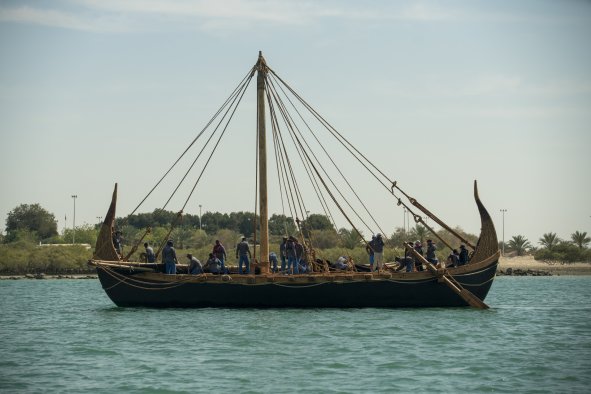The U.S. Ambassador to the Philippines warned China in a speech Friday that a strong coalition of allies will work together to protect the Philippines' rights in the South China Sea, urging China to "cease escalatory and dangerous harassment" of Philippine vessels.
In her speech Friday, Ambassador MaryKay Carlson highlighted that the United States, the Philippines, Japan, Australia, Canada, and France have "engaged in a series of multilateral maritime cooperative activities in an unprecedented show of solidarity."
She emphasized, "Sailing together sends a clear message: that we are all committed to upholding freedom of navigation and overflight in accordance with international law."
Carlson pressed China to "cease escalatory and dangerous harassment of Philippine vessels lawfully operating in the Philippines' exclusive economic zone; to stop infringing on the Philippines' rights to explore, conserve, and manage natural resources; and to cease interfering with freedom of navigation and overflight of all states lawfully operating in the region."
Her comments come almost a month after a violent clash where armed Chinese coast guard personnel damaged two Philippine military supply vessels and injured several. The June 17 incident occurred at Second Thomas Shoal, a disputed territory in the South China Sea.
In a speech the day before, Assistant Secretary of Defense for the Indo-Pacific Ely Ratner said the United States has "continued to stand with our ally as Manila defends its lawful rights in the South China Sea," stating that Second Thomas Shoal is "on the Philippines' continental shelf, and well within the Philippines' exclusive economic zone." China disputes this and claims sovereignty over the territory.
Carlson's speech takes place on the eighth anniversary of The Hague ruling, which resolved a dispute brought by the Philippines over China's territory claims in the South China Sea.
The ruling favored the Philippines, finding that many of China's claims in the Sea were unlawful. The Philippines celebrated the decision, while China rejected it and refused to participate in the arbitration.
Carlson, the top American diplomat in the country, said the ruling "stands as a milestone for all who seek a prosperous, inclusive, and secure Indo‑Pacific and who undertake to uphold the rule of law around the world."
A post on her official X, formerly Twitter, account reaffirms the U.S.'s "unwavering support" for the Philippines' rights "in the West Philippine Sea, in accordance with international law."
Earlier this week, two U.S. allies in Asia signed a bilateral defense pact to allow greater troop access and deployment in response to China's recent actions in the East and South China Sea. On Monday, Japan's Foreign Minister Yoko Kamikawa and the Philippines' Defense Secretary Gilberto Teodoro signed the Reciprocal Access Agreement (RAA), a legal framework for the two countries to deploy military personnel to each other's territory for training exercises and joint operations.
The international waters are heavily disputed, causing heightened tensions in the region. China asserts sovereignty over a vast majority of the South China Sea.
In his recognition of the anniversary of The Hague's ruling, Secretary of State Antony Blinken said, "The United States remains deeply concerned about the PRC's [People's Republic of China] assertion of 'territorial sovereignty' over vast areas that are clearly within the maritime jurisdiction of Vietnam, the Philippines, Malaysia, and Brunei, and where high seas freedoms of navigation and overflight apply under international law."
Newsweek reached out to the U.S. State Department and the Chinese Embassy for comment via email on Friday afternoon.
Disclaimer: The copyright of this article belongs to the original author. Reposting this article is solely for the purpose of information dissemination and does not constitute any investment advice. If there is any infringement, please contact us immediately. We will make corrections or deletions as necessary. Thank you.



